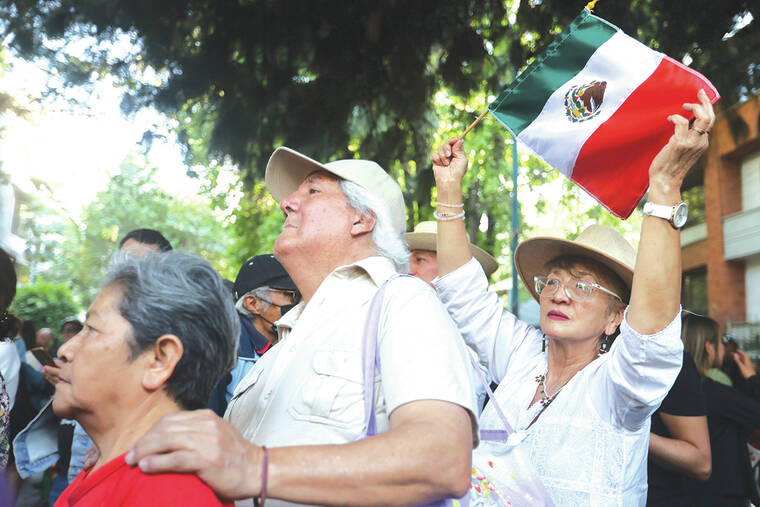International leaders condemn Ecuador after police break into the Mexican Embassy in Quito
QUITO, Ecuador — The global condemnation of Ecuador’s government for its decision to break into the Mexican Embassy snowballed Sunday with more presidents and other leaders expressing disapproval, shock and dismay.
The criticism came as Mexico’s ambassador and other personnel arrived in Mexico City on Sunday afternoon after departing Ecuador’s capital, Quito, on a commercial flight. President Andrés Manuel López Obrador severed diplomatic ties with Ecuador immediately after Friday’s raid, which international law experts, presidents and diplomats have deemed a violation of long-established international accords.
Alicia Bárcena, Mexico’s secretary of foreign relations, thanked the returning diplomats “for defending our embassy in Quito even at the risk of their own physical well-being.”
“Not even the dictator Pinochet had dared to enter the Mexican embassy in Chile,” she said Sunday, referring to the late Chilean dictator Augusto Pinochet. “They entered violently and without authorization, physically assaulting (diplomats). We energetically condemn it.”
Police broke through the external doors of the embassy to arrest Jorge Glas, a former vice president who had been residing there since December. He had sought asylum after being indicted on corruption charges.
Bárcena said Mexico plans to challenge the raid on Monday at the World Court in The Hague. She added that 18 countries in Latin America, 20 in Europe and the Organization of American States have backed Mexico.
The Spanish foreign ministry in a statement Sunday said, “The entry by force into the Embassy of Mexico in Quito constitutes a violation of the 1961 Vienna Convention on Diplomatic Relations. We call for respect for international law and harmony between Mexico and Ecuador, brotherly countries to Spain and members of the Ibero-American community.”
A day earlier, the OAS in a statement reminded its members, which include Ecuador and Mexico, of their obligation not to “invoke norms of domestic law to justify non-compliance with their international obligations.”
U.S. State Department spokesperson Matthew Miller said “the United States condemns any violation of the Vienna Convention on Diplomatic Relations, and takes very seriously the obligation of host countries under international law to respect the inviolability of diplomatic missions.” He called on the two countries to resolve their differences.
Diplomatic premises are considered foreign soil and “inviolable” under the Vienna treaties and host country law enforcement agencies are not allowed to enter without the permission of the ambassador. People seeking asylum have lived anywhere from days to years at embassies around the world, including at Ecuador’s in London, which housed WikiLeaks founder Julian Assange for seven years as British police could not enter to arrest him.
Glas on Saturday was taken from the attorney general’s office in Quito to the port city of Guayaquil, where he is being housed at a maximum-security prison.
Glas’ attorney, Sonia Vera, told The Associated Press that officers broke into his room in the Mexican embassy and he resisted when they attempted to put his hands behind his back. She said the officers then “knocked him to the floor, kicked him in the head, in the spine, in the legs, the hands,” and when he “couldn’t walk, they dragged him out.”
Vera on Sunday said the defense team had not been allowed to speak with Glas since his arrest.





